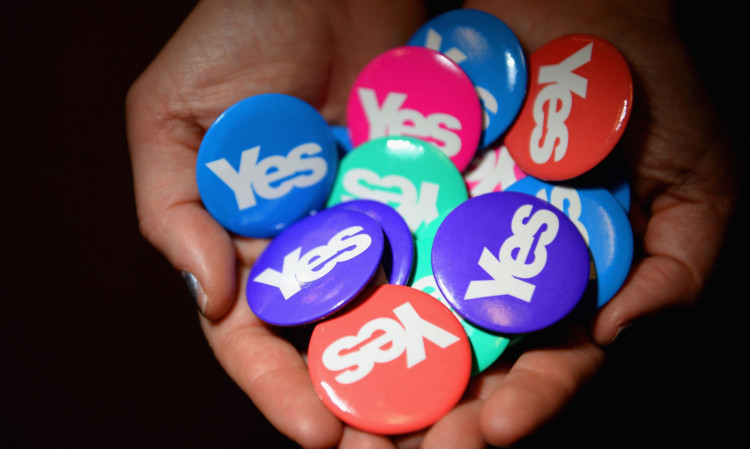Support for independence has increased slightly, according to a poll.
A third of people say they will vote Yes next September 18, up a single point on a previous survey by the same polling company three months ago.
The small increase to 33% comes two weeks after the Scottish Government published its blueprint for the future of the country, which was designed to answer questions about independence.
Support for the union remains static at 52%, according to the YouGov poll of 1,074 adults conducted between December 6 and 9.
The number of people who say they have not decided or will not vote remains unchanged at 15%.
If that group is stripped out of the results, the poll shows support for independence up one point to 39% and support for the union down one point to 61%.
The poll, published in The Times, indicates a high turnout next year with 77% saying they will vote, up from 74% in the previous survey.
The research suggests the economy remains a significant factor in persuading people which side to pick.
About twice as many people think Scotland would be worse off economically.
But when asked to imagine that Scotland would be better off independent, the gap narrows to just 41% for and 44% against, with 14% saying they still do not know.
Asked to imagine the opposite scenario, the gap extends to 28% for and 58% against.
Blair Jenkins, chief executive of pro-independence group Yes Scotland, said: “There is no doubt that Scotland would be better off after a Yes vote. We are a very wealthy country and we more than pay our way within the UK, contributing9.9% in tax revenues to the Westminster exchequer but getting back only 9.3% in public spending. As that information gets across, it is clear from the poll that there is everything to play for next September.
“As more and more people realise that Scotland’s vast wealth can be better and more fairly used, our own research shows the more they will come to Yes.
“There is long way to go, and this poll, in common with other recent surveys, shows that Yes is on an upward trajectory while support for No is slipping or standing still.
“Next year’s vote is about two choices. One is sticking with a Westminster system that isn’t working for Scotland and has led to the UK becoming one of the most unequal countries in the developed world. The other is an opportunity to make decisions that match our own priorities and aspirations and to build a fairer and more prosperous country. Only a Yes vote can deliver that opportunity.”
Better Together campaign director Blair McDougall said: “The SNP have spent hundreds of thousands of pounds of taxpayers’ money publicising their White Paper manifesto for breaking up the UK. Leaflets are being delivered to every home in Scotland, expensive adverts have been taken out in national newspapers and billboard adverts have been paid for across the country. All of this publicly-funded propaganda has been for nothing.
“Alex Salmond said the White Paper was going to be a game changer but his false promises have fallen flat.
“We take confidence in the knowledge that it is Better Together that speaks for the majority of Scots. Most people realise that we can have the best of both worlds in Scotland with a successful Scottish Parliament and the strength and security of being part of one of the largest economies in the world. We don’t need to choose between being proud and being strong.
“However, unlike the nationalists we won’t take the votes of Scots for granted. There will be no complacency from us and we will fight hard every day from now until the referendum.”
